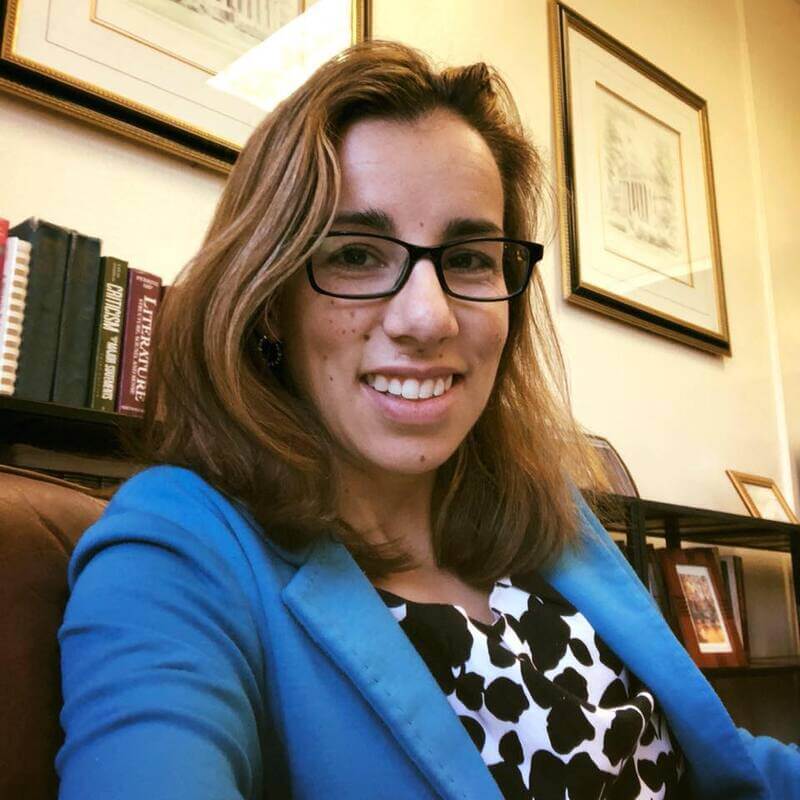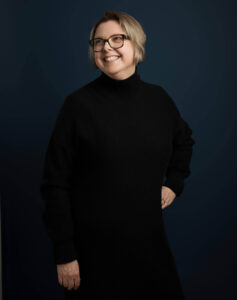I entered grad school interested in studying the later Middle Ages, roughly 1100-1500. There were many things I found fascinating about the period: the Crusades, the Black Death, and the rich and varied expressions of Christian spirituality. During my senior thesis in college, I had found published records from a trial in 1324 about a woman named Alice Kyteler who was accused of killing three of her husbands and breaking into a church at night to perform illicit rituals with a group of women. The salacious court records were fascinating to read, and offered a unique window to understanding some of the misogynistic portrayals of women in the Middle Ages.
I wanted to keep writing about this witch trial in graduate school and I naively decided that it should also become my dissertation topic. Thankfully, my professors at The Catholic University of America kept their reservations about this particular subject to themselves. Instead, they encouraged me to immerse myself in coursework that broadly considered the topic of medieval religious history. I happily obliged, because I was fascinated with the Christian culture of pilgrimage, saints, prayer practices, and other religious traditions that developed in the Middle Ages. As a lifelong Catholic, it was interesting to learn more about how different devotional practices that became central to Catholicism emerged during the historical period I loved.
To ensure that I was a well-rounded medievalist, I had to take classes both in early and late medieval history. Dr. Jennifer Davis, the department’s early medieval historian, offered to lead a directed reading course with me, entitled “Early Medieval Monasticism, Sanctity, and Piety.” Each Monday morning, we met in her office to discuss the book we had both read. It was both one of the most challenging and rewarding hours of the week. The accountability that came with being the lone student made me a better thinker and historian.
I was intrigued by the fascinating books that we read together, such as Furta Sacra: Thefts of Relics in the Central Middle Ages by Patrick Geary. This particular book examined why some people (and even entire towns) sought to steal precious relics – significant objects related to a particular saint. I often left class with my head spinning with questions. After our discussion on Furta Sacra, I talked endlessly about the class with my roommate Julie over dinner. In between bites, she remarked, “You know, Vanessa, you’ve never spoken with that kind of excitement when you’ve talked about medieval witchcraft.”
I spent all weekend thinking about Julie’s observation. What would happen if, in my last semester of coursework, I abandoned one topic in favor of a dissimilar project? Would I have to stay in graduate school even longer than I anticipated? While I found the potential change to be overwhelming, I was also on an academic high as I thought about some of the potential topics I could study in the field of medieval religious history: pilgrimage, saints’ cults, relic practices, etc. On Monday, I asked Dr. Davis for advice. I told her that I was titillated by our reading, and that it made me question whether I was studying the right topic.
Dr. Davis encouraged me to reach out to Dr. Jansen, who was on sabbatical in Italy. A few days later, I wrote her an email explaining what I had been studying all semester, and that I was considering making a drastic shift in my studies: “This excitement and passion has led me to contemplate leaving behind the witchcraft project and picking this up as a new dissertation topic. I am excited about what lies ahead.”
I was nervous about her reaction. In the three years that I had already spent at CUA, Dr. Jansen had already invested a lot of her time in me. In reality, my change in topic was well received, as her research also focused on medieval religious culture. Filled with anticipation, I waited for her response: “Now is the time to switch. The most important thing in choosing a dissertation project is that you are genuinely interested in the topic as this interest has to sustain you for years to come”.
With that encouragement, I officially switched. After she came back from sabbatical, Dr. Jansen suggested that I read Miri Rubin’s Mother of God: A History of the Virgin Mary. “Vanessa, you should consider writing about the Virgin Mary. This book will give you a lot to think about as you discern a possible topic.” As I read, I was fascinated to read about all of the intricate culture and devotional practices that emerged in the Middle Ages that were all focused on venerating the Blessed Virgin Mary. As a Catholic, Mary had always played a role in my faith: I found her to be a comforting person to turn to in moments of doubt and hesitation. And as a historian, I thought it would be intriguing to research the ways in which the most influential woman in Western religion shaped medieval Christian culture.
“Just read, Vanessa. Don’t search for a topic – let the sources speak to you,” Dr. Jansen advised, “Too many people try to force a topic from the reading. Keep an open mind, and eventually, you’ll land on something that you know you’ll want to write about for years on end.”
After spending a semester reading medieval sources about the Virgin Mary, I started to observe some interesting patterns in these devotional sources. As a lifelong Catholic, I loved looking at images of the Virgin Mary while I was sitting in the pews during Mass. I typically envisioned her as the maiden who quaked at the sight of the angel Gabriel at the Annunciation, or the young mother looking over the infant Jesus in Nativity scenes. On the contrary, these miracle collections depicted Mary as a strong woman, and when combating forces of evil, her words and behavior could be described as vengeful.
For example, in his twelfth-century Miracles of the Virgin Mary, a monk named William of Malmesbury wrote that Mary beat the devil with a stick, “redoubling her blows and making them sharper with words, ‘Take that, and go away. I warn you and order you not to harass my monk any more. If you dare to do so, you will suffer worse.’” I was flummoxed. This powerful depiction of Mary was in stark opposition to the obedient woman who said at the Annunciation, “Behold the handmaid of the Lord: be it done to me according to thy word.” After reading this, I wrote in my notebook, “These stories, which demonstrate Mary not as a compassionate intercessor, but as a potent intermediary, can also show the emerging complexity of the medieval understanding of Mary.” Perhaps this was enough of an insight to launch a new topic.
And it was. On April 12, 2017, I defended my dissertation, “The Voice of Mary: Later Medieval Representations of Marian Communication.” I claimed that by analyzing late medieval characterizations of Mary’s voice as powerful and authoritative, it reflected widespread concerns for regulating women’s speech in the Middle Ages and served as an effective barometer for measuring both religious and social change. It was a project I am extremely proud of, and really enjoyed the process of researching. Now that five years have passed since I finished graduate school, I know with absolute certainty that this was the project I was meant to do. I have no regrets about switching topics – only relief.
A dissertation is a difficult project, no matter what the subject matter is.
But if you do not have that excitement and enthusiasm to live and breathe that subject on a regular basis, it may be worth considering a new topic. I’m so glad I did.






